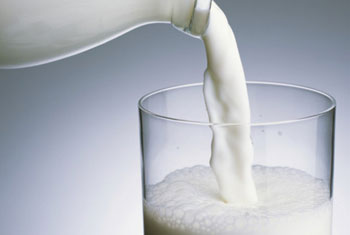Milk powder with no DCD to be released to market
August 20, 2013 09:42 am
The latest report by the Industrial Technology Institute (ITI) has found no traces of the chemical dicyandiamide (DCD) in 7 samples of imported milk powder held by customs at the Colombo Port.
The report on these samples was handed over to the Health Ministry’s Food Advisory Committee yesterday. It confirms that these samples contain no DCD.
Therefore the Ministry of Health has granted approval for the release of these relevant stocks of milk powder to the market.
Meanwhile the Industrial Technology Institute is scheduled to submit a report on 5 more samples, for tests on whey protein, to the Health Ministry tomorrow (21).
The Ministry further states that similar tests will be mandatory in the future on all imported milk powder stocks before they are released from the harbor.
The Health Services Director General had halted the release of all imported dairy products containing whey protein from the port after New Zealand warned international health authorities that several dairy products may contain a bacteria that could lead to botulism.
New Zealand-based dairy giant Fonterra Co-operative Ltd had withdrawn milk powder under orders from the Sri Lankan authorities for showing traces of the toxic agricultural chemical dicyandiamide (DCD), although it disputed the accuracy of the testing.
Fonterra had strongly refuted allegations that its products may be contaminated with DCD, which is used in fertilisers, and says testing regimes are flawed.
The nitrate inhibitor is added to fertiliser and New Zealand officials say it is not dangerous.
Following the controversy over traces of dangerous fertiliser chemical dicyandiamide (DCD) found in milk powder, the New Zealand Government reassured Sri Lankan consumers that food safety is a “priority” for all food produced in New Zealand for export to Sri Lanka.
The New Zealand Government said that dairy products the country exported to Sri Lanka must conform to New Zealand’s domestic requirements and any additional requirements put in place by the Sri Lankan government.
The report on these samples was handed over to the Health Ministry’s Food Advisory Committee yesterday. It confirms that these samples contain no DCD.
Therefore the Ministry of Health has granted approval for the release of these relevant stocks of milk powder to the market.
Meanwhile the Industrial Technology Institute is scheduled to submit a report on 5 more samples, for tests on whey protein, to the Health Ministry tomorrow (21).
The Ministry further states that similar tests will be mandatory in the future on all imported milk powder stocks before they are released from the harbor.
The Health Services Director General had halted the release of all imported dairy products containing whey protein from the port after New Zealand warned international health authorities that several dairy products may contain a bacteria that could lead to botulism.
New Zealand-based dairy giant Fonterra Co-operative Ltd had withdrawn milk powder under orders from the Sri Lankan authorities for showing traces of the toxic agricultural chemical dicyandiamide (DCD), although it disputed the accuracy of the testing.
Fonterra had strongly refuted allegations that its products may be contaminated with DCD, which is used in fertilisers, and says testing regimes are flawed.
The nitrate inhibitor is added to fertiliser and New Zealand officials say it is not dangerous.
Following the controversy over traces of dangerous fertiliser chemical dicyandiamide (DCD) found in milk powder, the New Zealand Government reassured Sri Lankan consumers that food safety is a “priority” for all food produced in New Zealand for export to Sri Lanka.
The New Zealand Government said that dairy products the country exported to Sri Lanka must conform to New Zealand’s domestic requirements and any additional requirements put in place by the Sri Lankan government.












